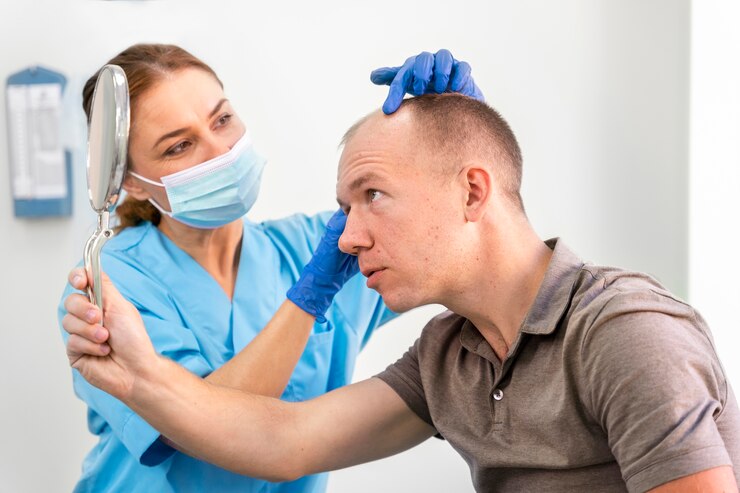
Contents
Hair loss is a common concern affecting men and women of all ages. While it is normal to shed a certain amount of hair daily, excessive or sudden hair loss can be distressing and may indicate an underlying issue. Understanding the common causes of hair loss is crucial for effectively addressing and managing this condition. In this article, the various factors that contribute to hair loss will be discussed.
Male and Female Pattern Baldness
One of the most common forms of hair loss is male pattern baldness, known as androgenetic alopecia. This genetic condition affects approximately 50 million men in the United States alone. It is characterized by a receding hairline and thinning hair on the crown of the head, often leading to partial or complete baldness.
Although less common than its male counterpart, female pattern baldness affects an estimated 30 million women in the United States. Unlike men, women with this condition typically experience diffuse hair thinning all over the scalp, with the hairline remaining intact. This type of hair loss is also influenced by genetics and hormonal changes, particularly during pregnancy, menopause, and other life stages.
Hormonal Changes
Hormonal fluctuations can impact hair growth and contribute to hair loss. During pregnancy, many women experience a temporary increase in hair growth due to elevated estrogen levels. However, after giving birth, the sudden drop in estrogen levels can trigger excessive shedding, known as postpartum hair loss.
Also, menopause can lead to hair thinning and loss due to the decline in estrogen production. The male hormone dihydrotestosterone (DHT) can also play a role in hair loss, particularly in cases of male and female pattern baldness. DHT can shrink hair follicles, leading to shorter and finer hair strands.
Other hormonal imbalances, such as those caused by thyroid disorders, polycystic ovarian syndrome (PCOS), or hormonal medications, can also contribute to hair loss. Meeting with a hair loss specialist Dallas will help you know more about the cause of your hair loss.
Lifestyle Factors
Stress also contributes to hair loss, as it can trigger a condition called telogen effluvium. During periods of extreme stress, a higher percentage of hair follicles may enter the resting phase prematurely, leading to excessive shedding. This type of hair loss is usually temporary and resolves once the stressful event has passed.
Certain hairstyles and hair treatments can also lead to hair loss. Tight hairstyles, such as ponytails, braids, or cornrows, can put tension on the hair and cause hair loss called traction alopecia.
Medical Conditions
Certain medical conditions can also contribute to hair loss. Alopecia areata is an autoimmune disorder that causes patchy hair loss on the scalp and other body parts. In this condition, the immune system mistakenly attacks the hair follicles, leading to sudden and unpredictable hair loss.
Scarring alopecia is another type of hair loss caused by inflammation and scarring of the scalp. Various factors, including autoimmune disorders, infections, or trauma to the scalp can cause this condition.
Treatment Options
While hair loss can be distressing, getting the best hair loss treatment in Dallas can help manage and address the underlying causes. The most appropriate treatment will depend on the specific cause of hair loss and the individual’s overall health.
- Drug therapy: Medications such as minoxidil (Rogaine) and finasteride (Propecia) can help stimulate hair growth and slow down hair loss in cases of male and female pattern baldness.
- Hair transplantation: When looking for the best hair loss treatment Dallas, hair transplant is a favorable option. This surgical procedure involves moving small plugs of hair from areas with dense growth to balding or thinning areas of the scalp.
- Laser therapy: Low-level laser therapy (LLLT) has been shown to stimulate hair growth and reduce hair loss in some individuals.
- Stem cell interventions: Researchers are exploring the use of stem cell therapies to regenerate damaged hair follicles and promote hair growth.
Conclusion
Hair loss can be a lot and can even reduce your confidence as a person. If you are experiencing excessive or sudden hair loss in Dallas, it is essential to consult with a hair loss specialist in Dallas for proper diagnosis and treatment. With the right approach and support, many individuals can successfully manage hair loss and maintain a healthy, vibrant head of hair.